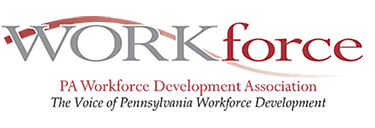From Pennsylvania Capital-Star
As legislative Republicans again push to require work for welfare benefits, the Wolf administration is redesigning ineffective job training for the state’s poorest parents.
Gov. Tom Wolf and his administration are strongly opposed to adding work requirements for programs like Medicaid, fearing that older, sicker people could lose their health care. The governor has used his veto power to reject General Assembly-approved work requirements on two occasions.
But under federal law, Wolf’s Human Services department must run a work program for parents who get cash assistance.
The problem? It’s not working.
Needy families, big barriers
Advocates for work requirements scored a major victory in the 1990s, when Congress and President Bill Clinton created a new cash assistance program for the country’s poorest families: Temporary Assistance for Needy Families.
Funding is given to states as a block grant that can be spent not only on cash assistance, work programs, and childcare — the program’s core functions — but on virtually anything that aligns with a broad goal to end “welfare dependence” and promote marriage.
Pennsylvania, for example, gives $1 million in TANF funds each year to a controversial nonprofit that manages anti-abortion crisis pregnancy centers.
Study after study after study has shown that work requirements cause more harm than good. A new paper from the National Bureau of Economic Research found that ‘90s welfare reform “led to a significant increase in antisocial behaviors” including fighting and stealing in boys.
At the moment, TANF recipients who don’t meet exemption requirements must do some type of work activity 20 or 30 hours per week, depending on their youngest child’s age. In Pennsylvania, the vast majority of people who receive this type of cash assistance — $403 a month, on average — are single moms.
County welfare offices may refer participants into one of three work or education training programs: Employment, Advancement and Retention Network (EARN); Work Ready; or Keystone Education Yields Success (KEYS).
Most are referred to EARN, which places an emphasis on getting people into a job as quickly as possible.
“But that approach really hasn’t seen positive, lasting results,” Human Services Secretary Teresa Miller told the Capital-Star.
By Miller’s own admission, the state’s work programs don’t have a good reputation. The secretary said she’s heard from participants who say they don’t need help to use a computer “and look at jobs that they don’t want and that don’t pay well.”
“What they want is a path to self-sufficiency,” Miller continued.
The poor outcomes bear out in the numbers. Less than half of the 31,000 people referred to EARN in 2017-18 actually enrolled — the rest lost the cash lifeline.
About 5,000 people who enrolled got jobs, according to Miller, and just 1,000 were still in those positions after six months.
It costs roughly $12,000 to place one person in a job that pays on average $12 an hour.
“What that told us is our existing programs like EARN are just not doing as much as they should or could be to really help gain self-sufficiency or maintain employment,” Miller said. “The focus I think for too long has been on job placement and not enough … to address the barriers that people have to remaining employed.”
So last year, the agency reached out to the people who participate in the program for feedback. What they heard: expensive childcare and transportation are keeping these women from long-term success.
The state’s solution? A total revamp of work programs with a new emphasis on individual case management and a partnership with the state Department of Labor & Industry.
